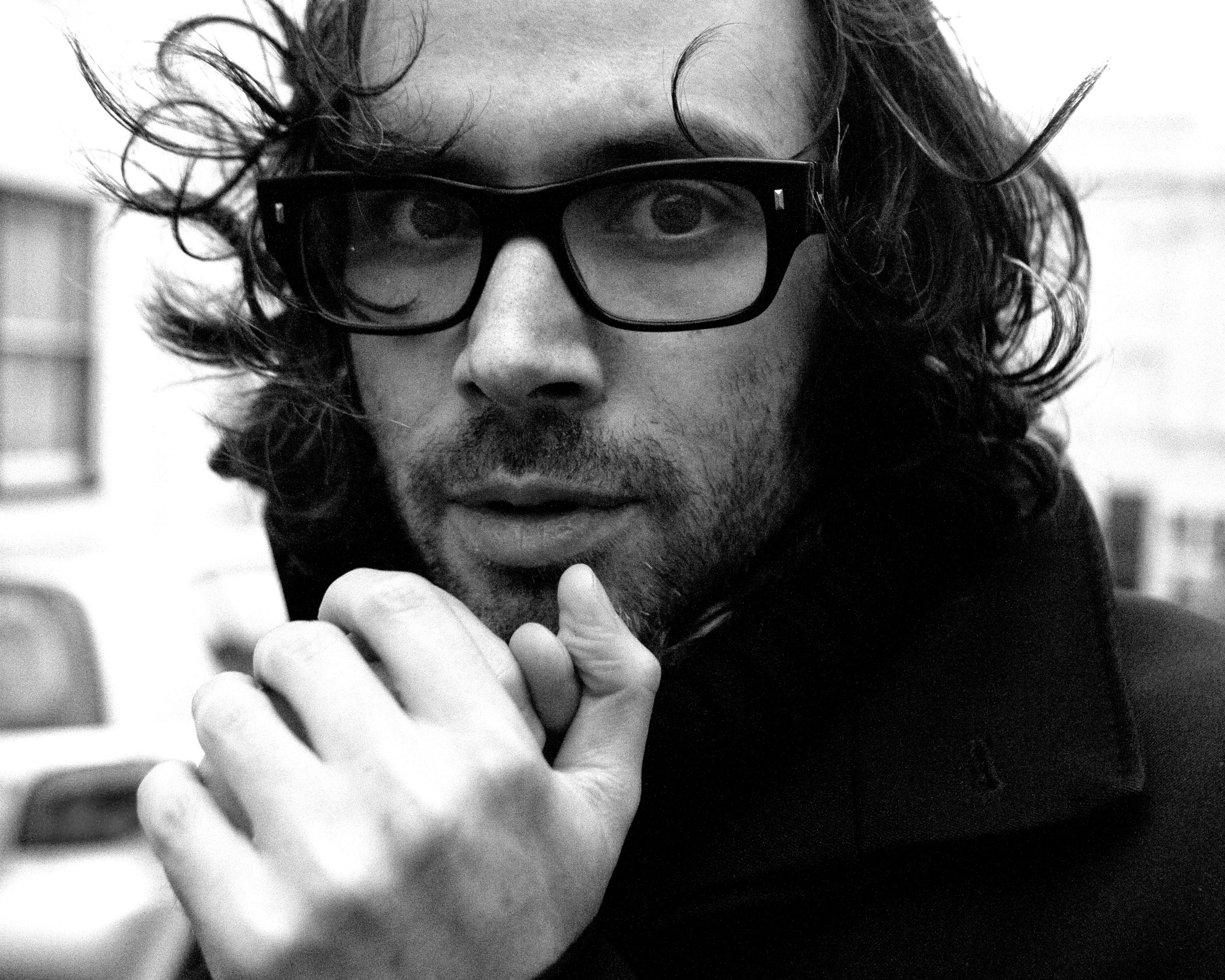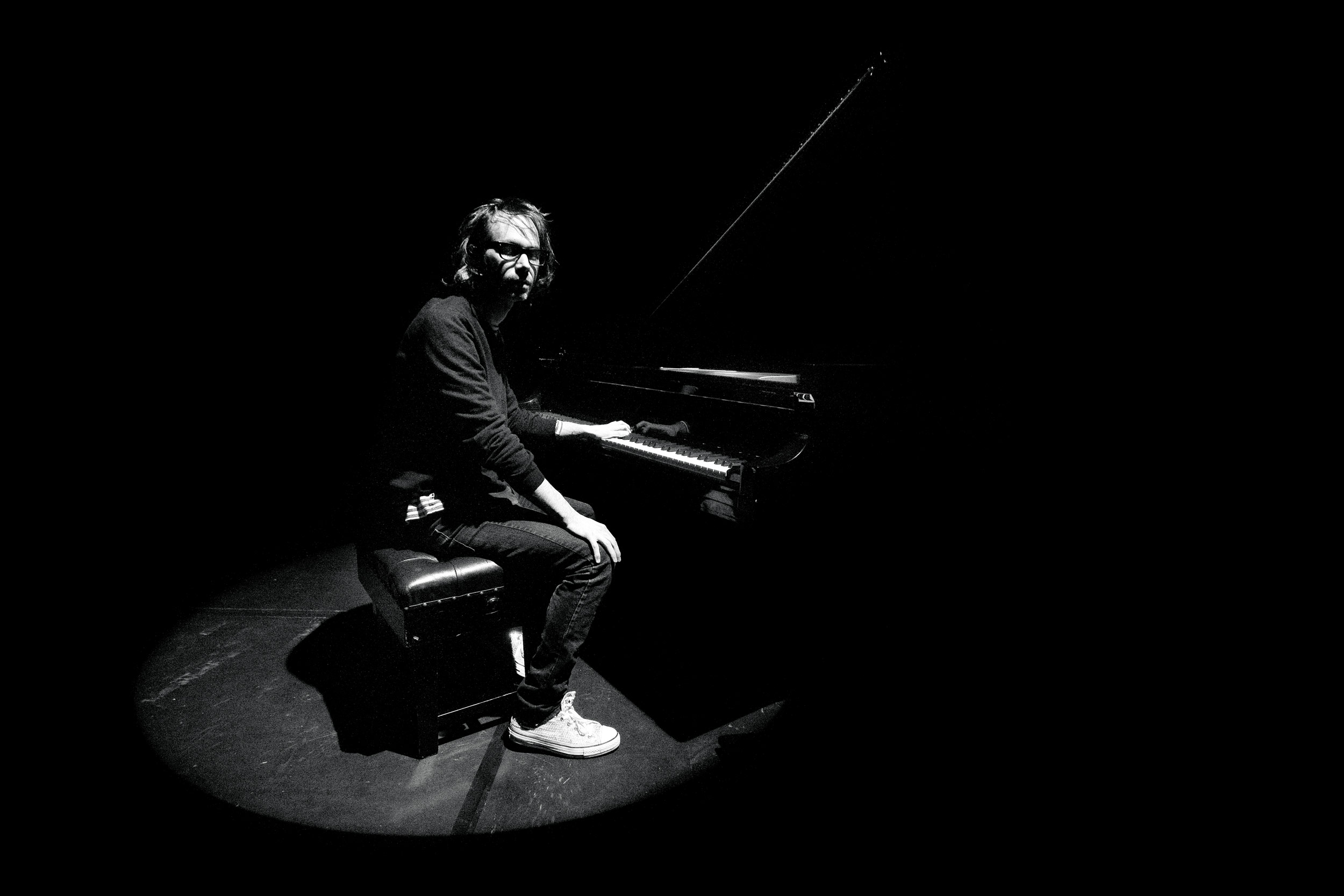
- Interview by Tammi Heneveld October 6, 2015
- Photography by Dave Brown
James Rhodes
- musician
James Rhodes is an acclaimed British concert pianist who quit his day job at age 38 to pursue music professionally and speaks openly about how music has helped heal his traumatic past. In addition to performing at concert halls and festivals around the world, he has released five studio albums and was the subject of his own BBC Four series, James Rhodes: Piano Man. His memoir, Instrumental, released in the UK in May 2015.
Tell us about your path to becoming a musician. My path was weird and unconventional. I got my first proper teacher at 14 years old, stopped playing for a decade after I turned 18, and then returned to it at 28. After studying like a bastard for five years, I met my manager, Denis. In 2009, he and I went on to record my first album, Razor Blades, Little Pills and Big Pianos, and set up some concerts. Everything else has grown from there; the only element that has been consistent since age 7 is having an unwavering and absolute hard-on for music.
Where did you grow up, and was creativity part of your childhood? I grew up in London. Music wasn’t really part of my childhood, but creativity was. I loved formulating weird and wonderful stories, imaginary friends, and fantasy.
Every childhood should be filled to the brim with creativity—that’s what childhood is for. Unfortunately, creativity is being eradicated from our schools faster than a rat out of an aqueduct. Fuck learning how to wear a tie by age six, making sure your handwriting is perfect by eight, and being able to count in French and Spanish at nine. The grown-up stuff will follow when it’s meant to.
Was there an “Aha!” moment when you knew that being a musician was what you wanted to do? Yes! My “Aha!” moment came when I heard the Bach-Busoni Chaconne for the first time as a young kid. It absolutely knocked me to the floor, and I knew then and there that music was the only thing I wanted to devote my life to.
I may also have had similar feelings around seeing Wham! on Top of the Pops, but I wouldn’t ever admit to that.
Have you taken any big risks to move forward? I like the idea of calling stupidity risk. When I was 38, I quit my job in the city to embark on a career that most people start off when they’re not even teenagers. I ended up in psychiatric wards, lost several stone in weight, and became completely obsessed in the pursuit of something to the point where I sometimes wouldn’t eat or talk for days at a time. But you have to take risks.

“…we all have a duty to shine a bit of light and contribute something smile-inducing. Life is brutal, short, ugly, and disappointing the majority of the time; to be able to find moments of respite and, even better, to offer them, is the best thing anyone can do.”
Do you feel a responsibility to contribute to something bigger than yourself? Yes, but it’s hard not to sound like a dick talking about that. I believe we all have a duty to shine a bit of light and contribute something smile-inducing. Life is brutal, short, ugly, and disappointing the majority of the time; to be able to find moments of respite and, even better, to offer them, is the best thing anyone can do. Receiving messages from people telling me how one of my albums, my book, a tweet, an article, or a TV interview has contributed to their day in a positive way is humbling and awesome all at once.
Of course, nothing gets much bigger than Bach or Chopin and the like. I try and contribute to them daily, even if I consistently fall short.
Do you feel creatively satisfied? That’s a tough question. I want to say yes, but my gut says no. Performances are never good enough: I can never make what’s in my head translate perfectly onto the piano, and I’ll never have enough time to learn all the pieces I want to learn. I won’t ever write the perfect paragraph, let alone the perfect book. It’s important to remember the old schtick about it being about the journey and not the destination—it’s the act of trying to attain those things that can provide satisfaction. The process of taking a score down from the shelf, getting the ashtray, pencil, coffee, and metronome ready, working my ass off for a few weeks, and then performing a piece live from memory is immensely satisfying.
What musicians or songs inspire you, or have inspired you, in the past? Fuck me, I could fill a book. In no particular order: Glenn Gould, Ben Folds, Joanna Newsom, Vladimir Horowitz, Freddie Mercury, David Bowie, Grigory Sokolov—but it’s impossible to list them all. I have over 200GB of music, and, honestly, I’d include all of it here if I could. The short answer is yes, and they were all ground-breaking and different in some way when they hit the scene. Thank god for being different.
What advice would you give to another musician who is just starting out? Don’t listen to assholes. Don’t bother with scales unless you love them, and don’t learn any piece you don’t love. There’s more than enough success for everyone, so don’t resent the success of others or try to keep it all for yourself. Know that your parents and those who love you will often freak the fuck out because of your career choice, but don’t ever back down. Don’t read reviews, and don’t play to impress anyone other than the composer. Ask for help. Be as kind as possible to everyone.
In a similar vein, what would you say to your 18-year-old self? It was too late for me by 18, so I would choose my 10-year-old self instead and tell him: “Hold tight, dude. It’s going to be fucking horrible for at least another decade and likely longer—but I swear to you that if you can hold on, it’ll get better than anything you’ve ever dreamed possible. You know more than you think, and anyone who tells you otherwise or makes you doubt what you know to be true isn’t worth a pitcher of warm spit—fuck ‘em. Please just hold on a bit longer.”
How does where you live influence your creativity? It doesn’t. All I need is an ashtray and a piano, probably in that order. And my wife, obviously.
What kind of legacy do you hope to leave? That’s a ridiculous question. Beethoven left a legacy; Mozart, Bach, Bob Dylan, Churchill, Dickens, and a thousand others who will never be understood by even the greatest minds of our time left a legacy. All I hope to leave is enough cash for my kids to never have to worry about doing a job they despise, and hopefully not too much of a mess.